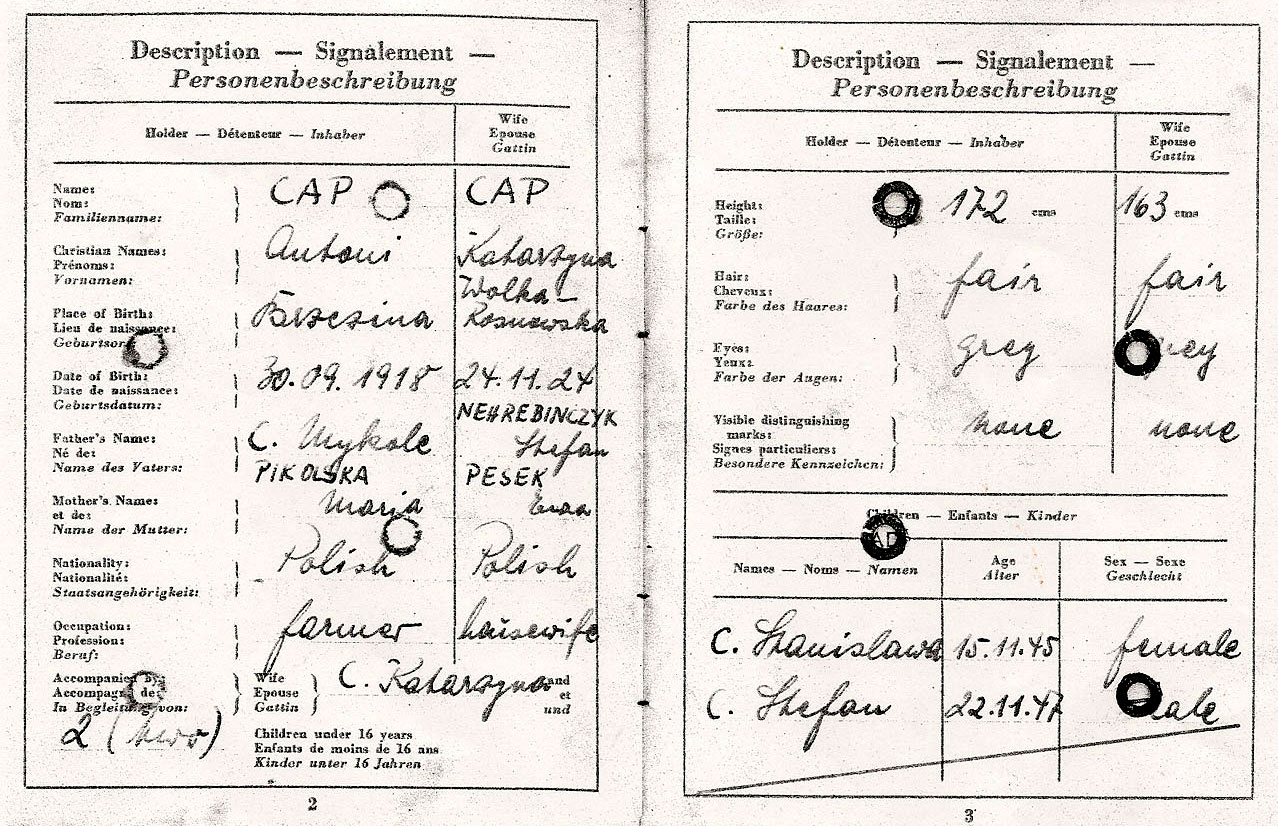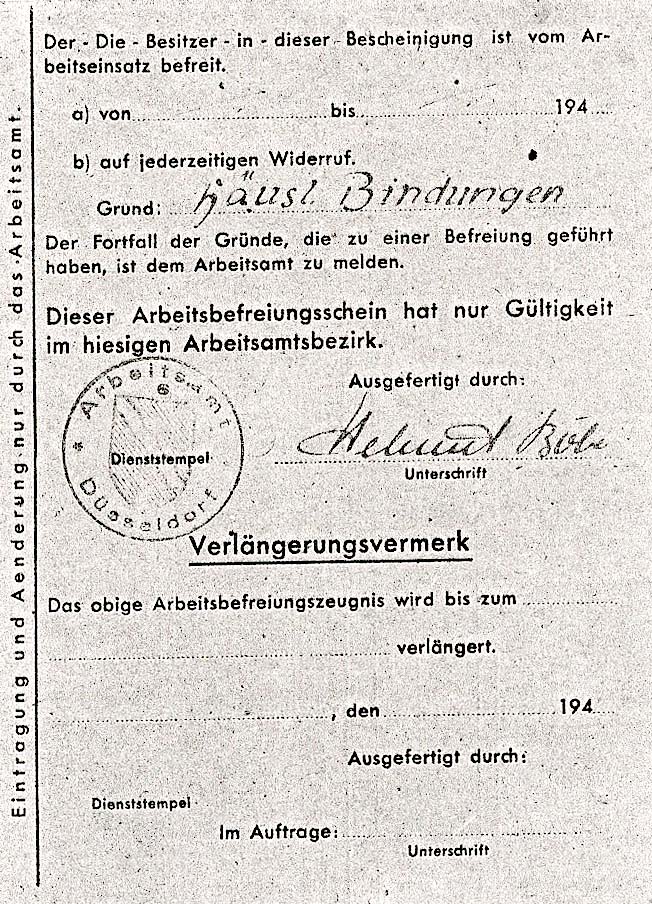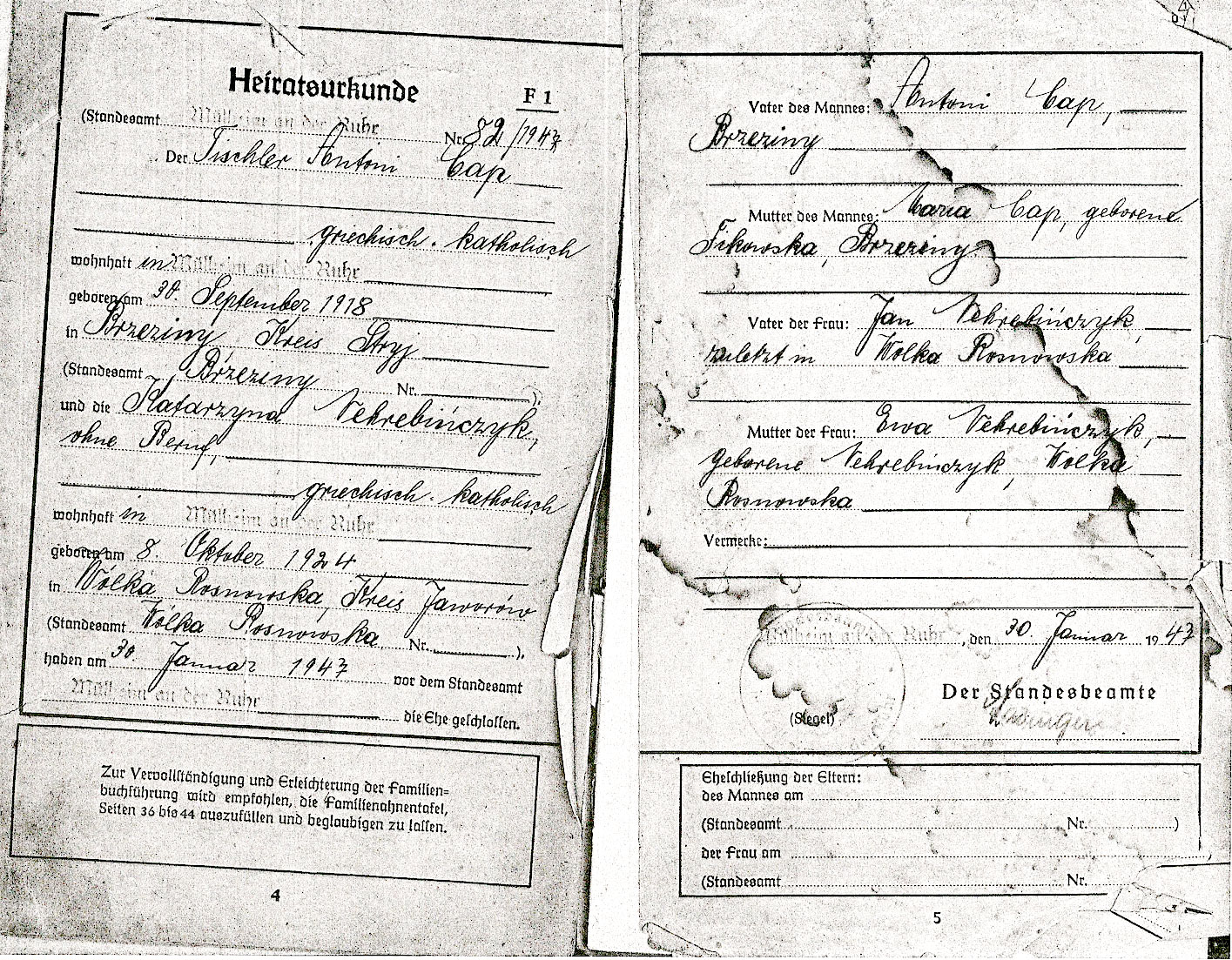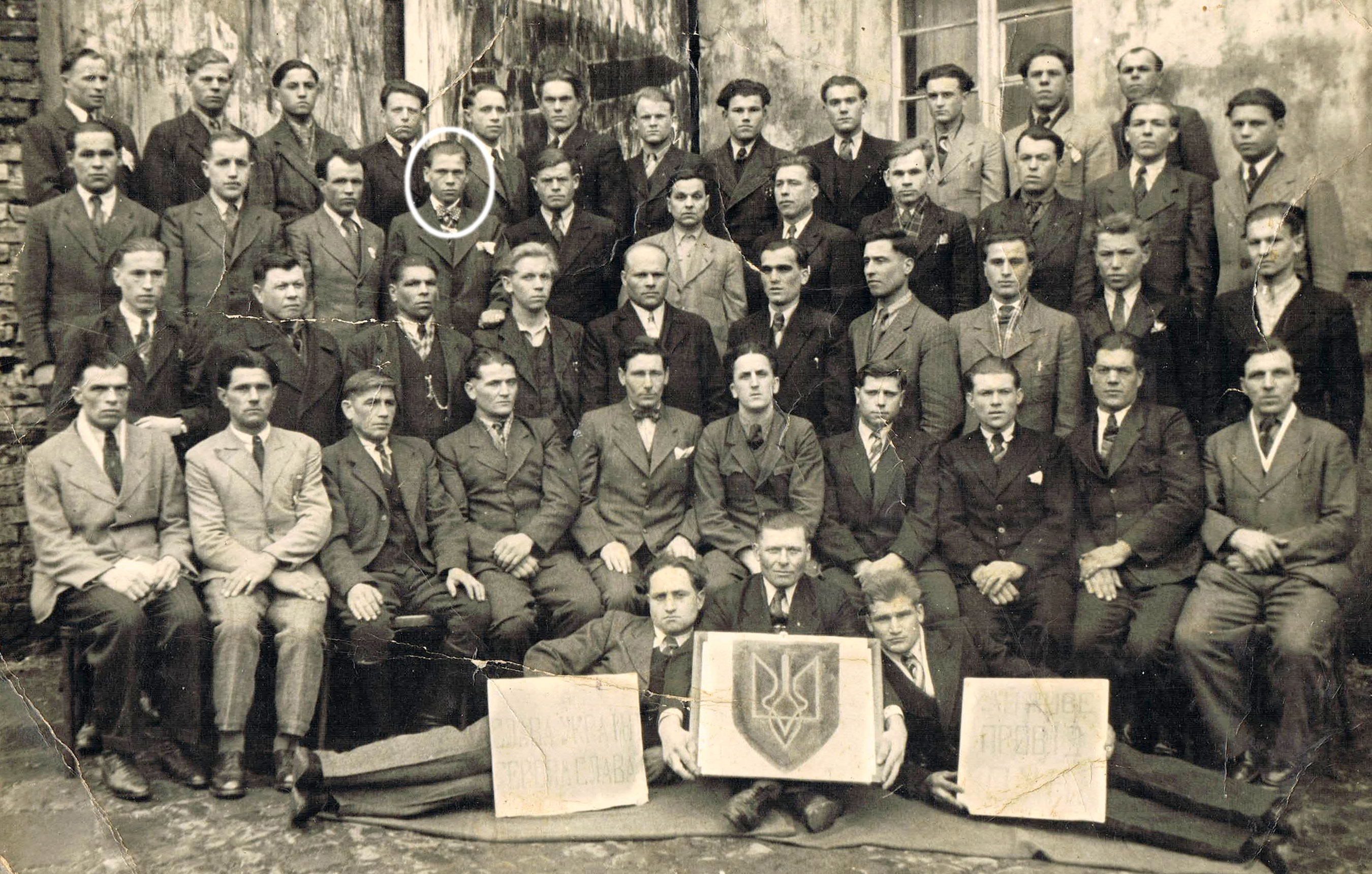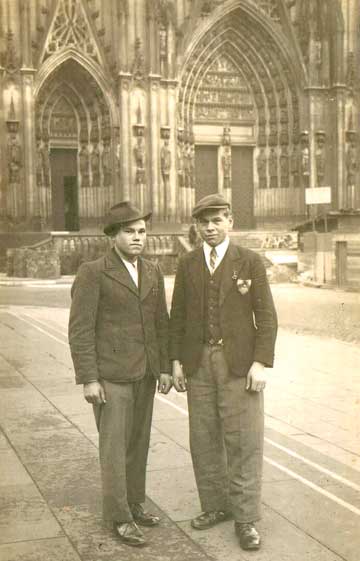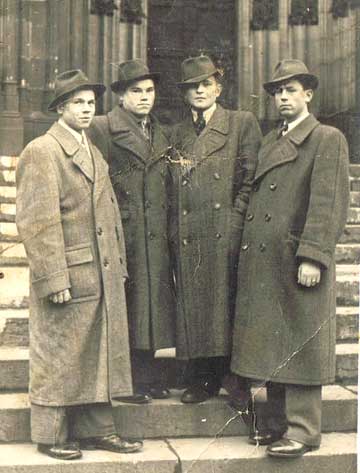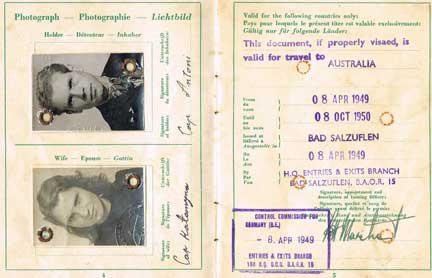Düsseldorf / Duesseldorf; Land
Niedersachsen (British zone),
#41/182 DPAC 182, DPACS 67, DPACS 41, DPACS 67/41;
Jews, Belarus
City archives Stadtarchiv
Landeshauptstadt Düsseldorf
Heinrich-Ehrhardt-Strasse 61
40468 Düsseldorf
Tel: 0211. 89 95 737
http://www.archive.nrw.de
http://www.duesseldorf.de
Email: stadtarchiv@stadt.duesseldorf.de
Information: Dr. Elisabeth Scheeben Tel: 0211. 89 94 485
Email: elisabeth.scheeben@stadt.duesseldorf.de
Landesarchiv NRW Hauptstaatsarchiv Düsseldorf
Mauerstrasse 55
40476 Düsseldorf
Tel.: +49 211 22065-0
Fax: +49 211 22065 55-501
E-Mail: hsa@lav.nrw.de
Archiv des Diakonischen
Werkes der Evangelischen Kirche im Rheinland
Lenaustr. 41
40470 Düsseldorf
Phone: (0211) 6398-272
Fax: (0211) 6398-299
Dear Olga,
Your dpcamps page was interesting. Thank you. Dad came from Belarus (early in
the war) and was a military POW. As neither Polish, Belarus / Russian or Lithuanian
armies can tell me of him, I should like to find his record of capture in Germany
to establish whom he served and when and where he was captured. My dad was in
Dusseldorf for a time as well. Mum and dad married in Dusseldorf. Where in Germany
can I access or request this information, for as you say the Einwanderungszentrale
of Nazi Germany had information on all who came into their grasp. Yours truly, Terese
Umbras Fehlberg / Australia
7/18/2011 Hi Olga,
I was wondering if you could post this photo on your site. I'm currently doing research into my family (grandmother and grandpops) as I'm illustrating a book about my grandma's early life. She was deported to Germany in 1940 where she worked as a housekeeper on a farm and then was in many DP camps from 1945 until 1949 . They came to Melbourne, Australia on the Nelly and settled there - I grew up in Melbourne but currently live in Spain. I have the transcript of my Grandma's experiences but now that she has passed I am trying to fill in many gaps, especially about my grandpops who died many years before her.
I have no idea when the photo attached was taken but perhaps you or someone who views your site could tell me what the text says and who these gentlemen might be and what the group is representing? My Pops is in the 2nd row from the top, 4th from the left wearing the bow tie - with his hand on the below gentlemen's shoulder. I'm hoping this photo could shed some more light on his history. I believe the second word on the left plaque is "Ukraine" and the coat of arms [Ukrainian truzub trident*] is there so perhaps it's a political group. [Olga's comment: represents their solidarity with Ukraine]
I have also attached some papers we had, I have found my grandma's birth town in the Ukraine (Poland in 1924) but am unclear exactly if my Pops was born in Berezhany / Brzezany, Ukraine, because he was in fact - we believe - Ukrainian not Polish as the documents state. My grandmother claimed fervently she was Ukrainian to the point where she once refused to wear the Polish "P" badge during the war and told the SS to find her the Ukrainian badge! They could speak Polish however and these papers we have are all written by Germans so the spellings and nationality were as they decided or understood. There is however many Brzezina names in Poland so I would love to hear your or anyone elses thoughts on the issue. I do believe this photo seems to point to the fact he was proudly Ukrainian.
I plan to give the book I am creating to my family (my uncle and aunt now living in Australia were both born in DP camps in Germany) and also to my grandparents great grandchildren so that they will always know and remember their heritage and what my grandparents went through to give them such a fortunate life in Australia. I would be happy to send you a pdf copy when finished if you are interested?
I hope you or a viewer
might be able to help.
Many thanks,
Miranda Warren mj@mirandajean.com
Olga's comments:
Those
from the Polish side of Ukrainian had to were a P; those from the Russian
side had to wear O (Ost - East).
Ukraine was split in the first World
War - Poland getting the smaller half, Russia getting the bigger chunk. Poland
did a lot of ethnic cleansing to rid Ukrainians out of Poland and into Russia
(based on Yalta Agreement). It went very badly for the Ukrainians.

On the left Slava Ukraine (Glory to Ukraine) CERoda .Slava Can't read second line. Sign on right can't read first line. Provid? Can't read second line
Thank you kindly for your help and the web page and links. Your notes are excellent and already help enlighten us on our family history. Having the opportunity to post this information is wonderful and I hope the information can help more people too.
I've attached a couple more photos, my Aunt seems to think these were
taken in Cologne. My grandparents definitely moved through at least 4
camps -
a transcript excerpt from my Grandmother - "I don’t why they
moved us,
they moved us all the time, they came with the truck, an American truck...
Dusseldorf,
Millhanruan [Mülheim an
der Ruhr]...moving all around....
in one room, you have one big room,
three or four families lived in that room.
...Chesa was born in Brauweiler and Stefan in Duisburg." They all
are very
close
in location - except Brauweiler.
I know she lived during the war near Köln as she spoke of bombing and air raids there. When she was pregnant with Chesa in 1945 she recalled returning to her old "boss" to visit. She was given food, a pram and clean children's clothes and nappies. (She was very lucky to be cared well for by her German household, her boss treated her like a daughter.) She said you weren't supposed to bring anything back into the camps but the guards at the gate didn't mind if you chatted with them and didn't try to hide anything.
I have also attached the ID travel card which says they left Germany from Bad Salzuflen. I know the boat stopped in Naples, Italy, 21 August and arrived in Melbourne, 15 Sep 1949. I have found 2 files within the Australian National archives.
Many thanks again,
Miranda mj@mirandajean.com
